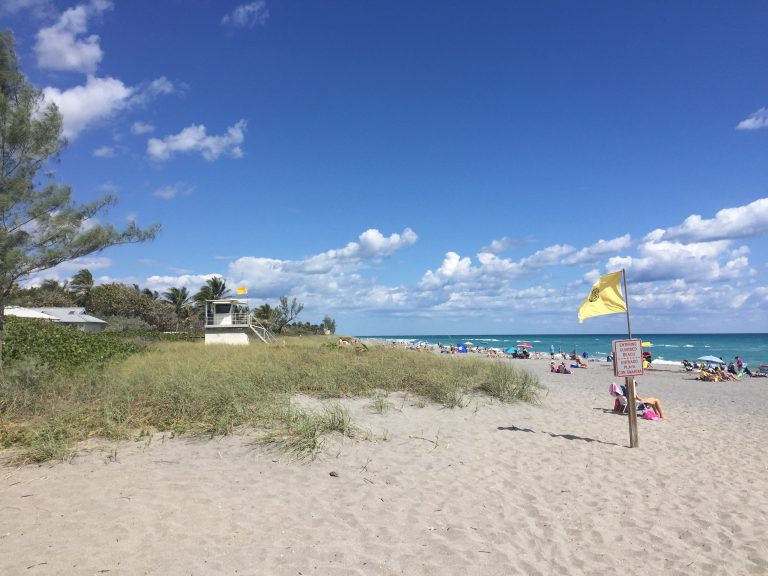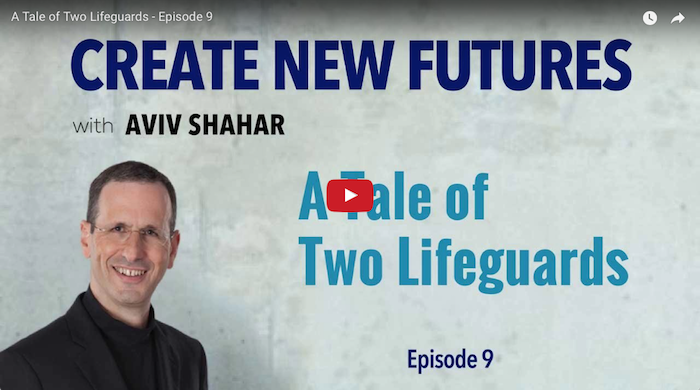A Tale of Two Lifeguards
Each of us harbors two characters within. The dedicated part of us goes above and beyond what is required, while the expedient part opts for cutting corners. Every day we get to choose which aspect of our character will show up. That choice can determine our success or failure - and even, in some cases, life or death.
One morning as Sara and I arrived at the beach, we noticed that Mikey, a long-time lifeguard, was collecting the dry seaweed along the water's edge. He told us the seaweed would be used to shore up a sand dune at the edge of the beach that had been destroyed earlier in the season. "Why do you do this, Mikey?" asked Sara. "Clearly this task is not part of the lifeguard job description."
Mikey replied, "I love the beach; it gives me sustenance. I want to protect it and keep its ecosystem healthy so that others can enjoy it too. A couple of mornings each week I engage in a task that contributes to the welfare of the place that I love and that provides me with both livelihood and the love of life."
The following morning was stormy and windy. The lifeguards had taken refuge in their tower, leaving two fishermen and me alone on the beach. After I dove into the water, I discovered that the yellow flags that define the swimming area and serve as my markers were missing.
I dashed out of the water to the lifeguard tower. "Where are the yellow flags?" I asked.
"No one is here today, so they serve no purpose," was the dismissive reply from Parker, a new lifeguard.

As I returned to the stormy ocean to continue my swim, Parker's comment bothered me. I could have dismissed it and moved on. However, a part of my mind is wired to capture the odd moments in life that provide learning and teachable value, then slowly make sense of them until I decipher the picture. This process is similar to the one required to develop pictures in the days when cameras had film. To extract the pictures, the film had to be treated with a chemical that gradually converted the latent images into visible ones (photographs). The process took a little time.
Did you know that we all have a part of our mind that works like the "old time" development process? In my book Create New Futures, I describe the three speeds of the mind. I call the middle speed the "pondering" mind because it develops the "pictures" that gradually become clear as the brain connects the dots among the data that constantly flood our brains.
Your pondering mind knows your interests and helps you solve problems. In my case, my fascination and inquiry relate to the human story at the convergence of learning, discovery, innovation breakthrough and the human spirit. Thus when I observe successes and failures (my own as well as others'), I forensically decode them to identify what enables people to produce remarkable outcomes or what blocks them from producing breakthrough results.
Parker's comment activated my pondering mind. What gradually came into focus was a stark contrast between Mikey's way of being on the job versus Parker's. We all have seen the manifestation of these opposing attitudes of dedication and expediency in corporate offices, in hotels and in restaurants. The difference between these two attitudes determines the outcomes you can achieve. Your choice even can be the decisive factor in life or death situations.
Mikey exemplified his dedication character by taking on tasks that are beyond the call of duty. Why? Because he cares. He understands deeply that his actions can shape the ecosystem. Mikey represents the people who show up each day ready to contribute by making a difference in their ecosystems.
Parker, on the other hand, demonstrated his expediency character when he chose to slide by with the minimal amount of work. He showed no respect for the protocols and rituals that are part of his job. It seems that it did not occur to Parker that putting up the yellow flags is about much more than the utilitarian value of the moment.
What caused Parker's attitude? The absence of attentive care that inspires people to take on extra work. What does it look like when such care is present?
We see it in the rituals of our jobs. For example, a farmer walks the perimeters of the farm to find out what needs fixing. A police officer who walks the street and greets people demonstrates his presence and reassures the neighborhood. A pilot who walks around the aircraft to run his visual checklist does so not because he distrusts the ground crew, but because the ritual itself puts him in the mental frame of attention to details. And we see the care in the nurse who provides comfort to her patients.
These rituals alert people that they are connected to the great traditions of their fellow professionals. They activate the desire to perform at the highest possible standard. People like Mikey choose dedication over expediency, and continual improvement over the erosion of standards.
We all have both lifeguards in us. Every day we get to choose who, and how, we will be. Creating a new future for you and your family, for your team and your business, begins by choosing to go beyond the call of duty, to bring forward your focused presence, love, and dedication to your work and your life. After all, that's what we are here for: to create new futures by bringing forward care, dedication and love.
Mikey or Parker: who do you choose to be today?
© Aviv Shahar


